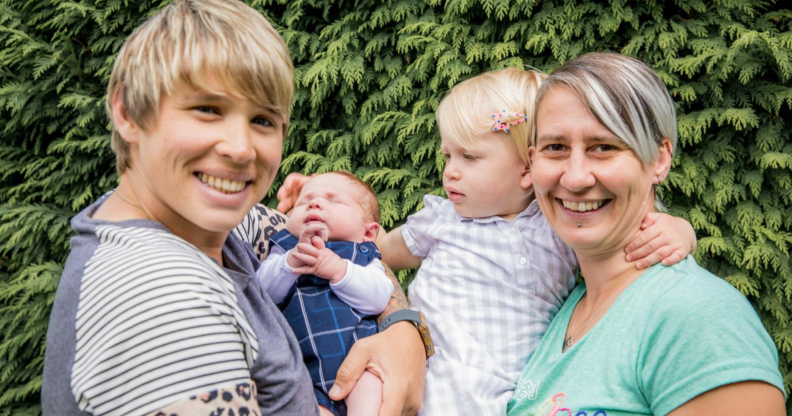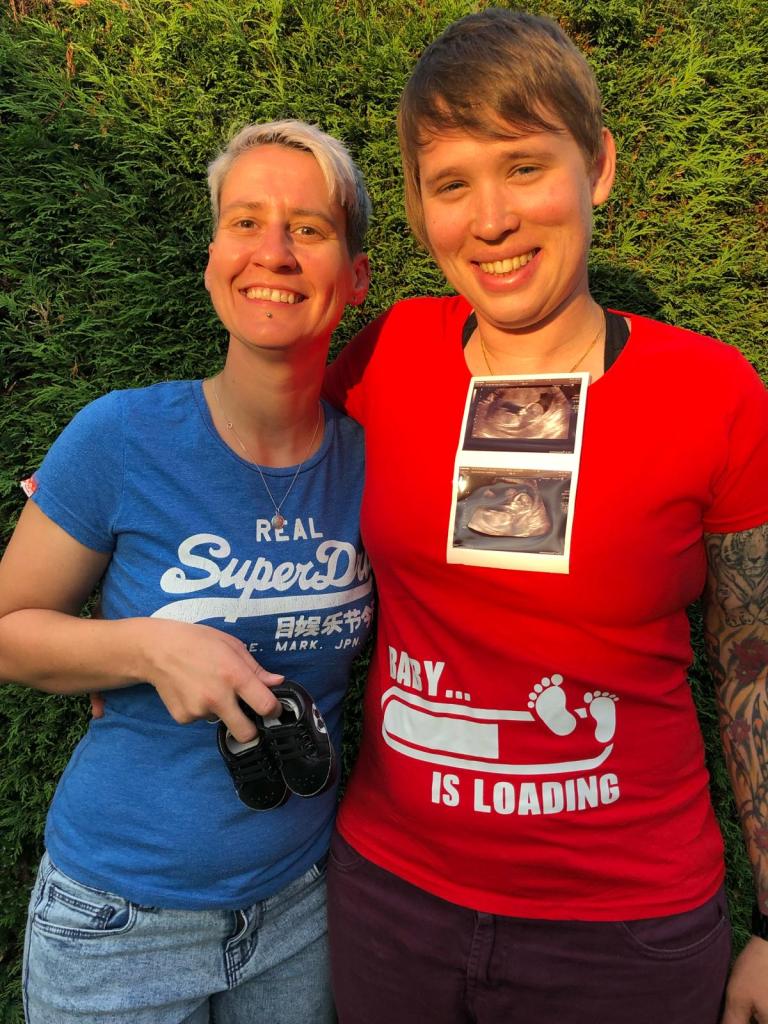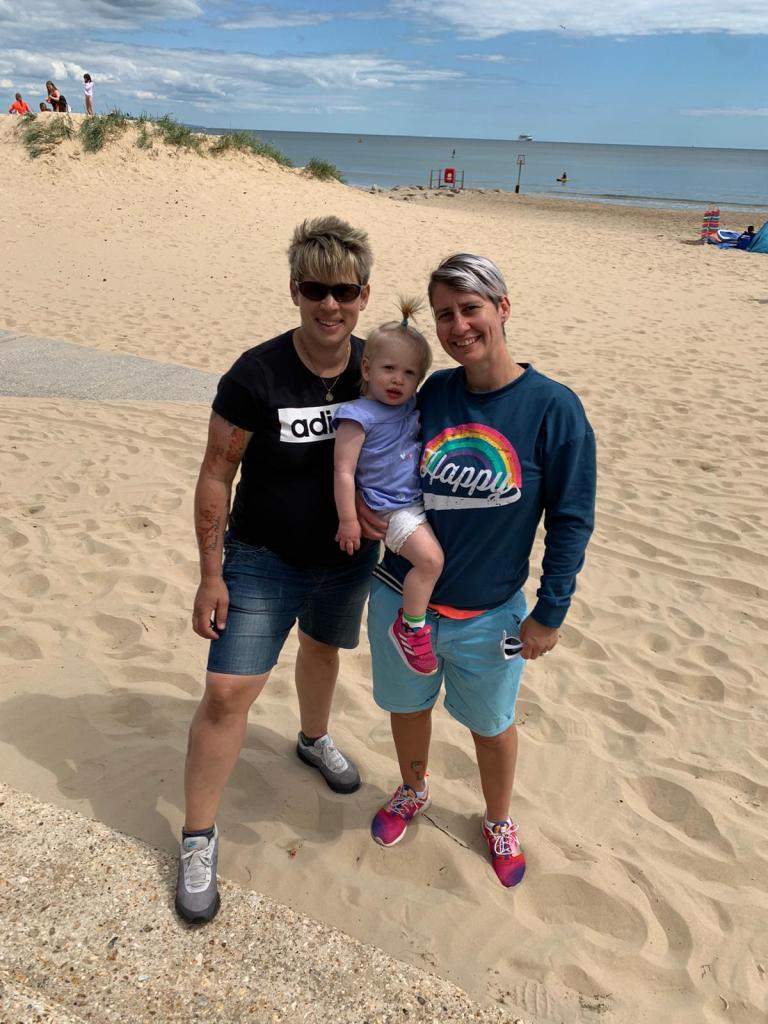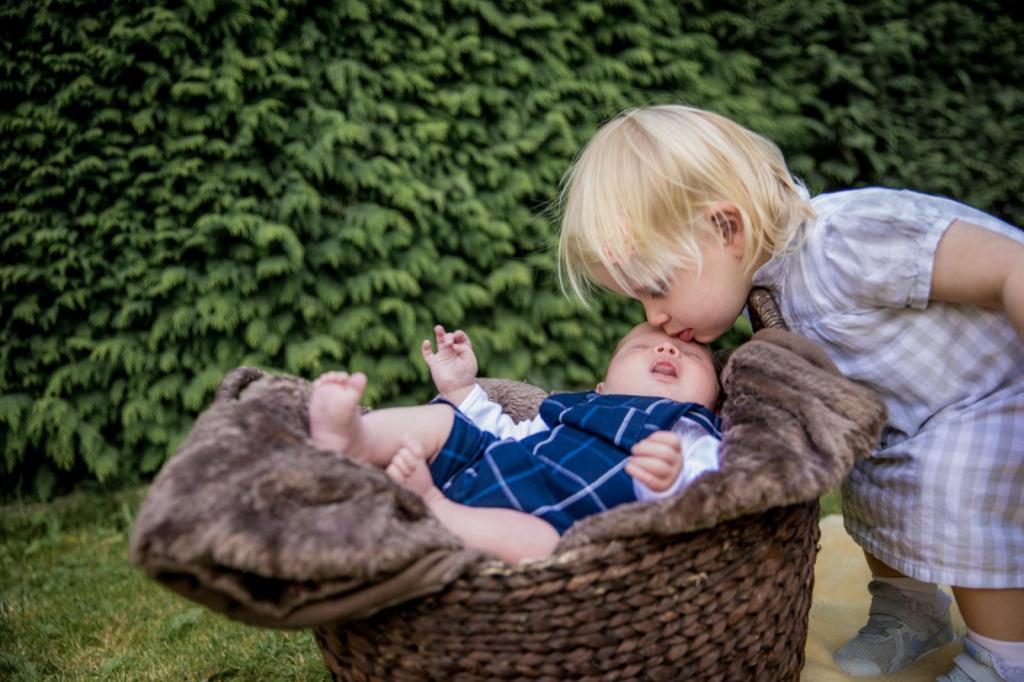Lesbian couple refused NHS IVF referral unless they could ‘prove they were trying’ for two years

The couple had to fork out thousands for private treatment. (Handout)
A lesbian couple has claimed that they were refused an NHS IVF referral unless they could “prove” they “were trying” for two years.
Maz and Steph Davis-Hyde — who live in the Forest of Dean, Gloucestershire — decided back in 2016 after getting married and buying their first home that they were ready to have children. The pair, who are now 41 and 42, respectively, were told that they would both need to “try” for pregnancy consecutively for two years each before they would be considered for fertility treatment on the NHS.
Queer couples can’t “try” for a baby without assisted medical intervention (like artificial insemination), which would not have been covered by the NHS until after undergoing up to six cycles privately.
Maz told PinkNews: “It was never made very clear on how we should prove we were trying. It is unfair for lesbian couples, as both [partners] must try for two years — four years in total — before being considered for fertility treatment.
“Steph really wasn’t comfortable with being pregnant and carrying a baby, and I didn’t think I could [fall pregnant through sperm insemination] due to having Polycystic Ovaries. The chances were very slim,” she explained.

The Gloucestershire NHS Assisted Conception Policy states that all couples must have infertility of at least three years duration for women under 35 years of age, or two years duration for women aged 35-40 to qualify for a referral.
Women in same-sex relationships, however, must undergo 12 cycles of artificial insemination to qualify as “two years of unprotected intercourse” and therefore be referred for specialist fertility treatment. For context, the NHS states that costs for IUI range from £700-1600 each cycle.
The couple instead opted to undergo private treatment to start their family with the financial support of Maz’s father, and their IVF journey began in 2018. “Whilst my dad offered to pay for the treatment, we paid for the medication involved with sperm insemination, which was around £1500 each time.
“It wasn’t difficult to save because of the support from my dad,” she explained, adding, “but I had to lose two stone to start trying, as my BMI was too high and it all fell on me to give us our children.”

However, the money they spent on the process was protected by Access Fertility, an IVF refund programme which offers up to a 100% refund if their treatment doesn’t result in pregnancy.
“Due to having polycystic ovaries, we were sure it would be a long process and that we would need multiple attempts and therefore we chose the 3-cycle refund programme with a 70% refund,” said Maz. “It gave us a light at the end of the tunnel to try again if we weren’t successful.”
The pair ended up pregnant in the first cycle and didn’t need to receive the refund. “But it gave us financial peace of mind having a plan in place.”
Their first pregnancy experience was, however, a “painful” one, after falling pregnant with a blighted ovum, where the gestational sac is empty. After experiencing an incomplete miscarriage, Maz had to go to hospital for a D&C procedure to have the embryo removed.
“That in itself really made us wonder whether we would mentally be able to do [IVF] again because it was so painful and such a horrible experience for our first pregnancy.”

They eventually fell pregnant with their first child — Kodi, now five — on the third try, where “everything was put into perspective – seeing that heartbeat, hearing it!”
After Kodi turned one, the family decided to restart the process for their second child, “anticipating a year of trying”. But things happened a lot quicker this time around. “As it happened, we [got pregnant] the first-time, and there was baby number two, Oakley,” said Maz of the tot, who is now three years old.
Despite being unable to go through with IVF via the NHS, the couple credited the organisation for its “amazing” care during both pregnancies and labours, adding that they were “very well looked after”.
A representative of Glouctershire NHS told PinkNews: “Whilst we are unable to comment on individual cases, we do understand the wish of couples to start families and become parents.
“In commissioning services, we have a responsibility to strike the right balance between meeting the clinical needs of local people, ensuring the best possible health outcomes and achieving value for money.
“NHS-funded assisted conception services are available to couples, including women in same-sex partnerships, where they meet the eligibility criteria set out in the ICB’s policy. The policy is publicly available on our website.
“If people do not fully meet the eligibility criteria, but their clinician feels there are exceptional clinical circumstances, then they can apply for exceptional funding. This application will be considered by the Individual Funding Request (IFR) Panel.”
How did this story make you feel?

